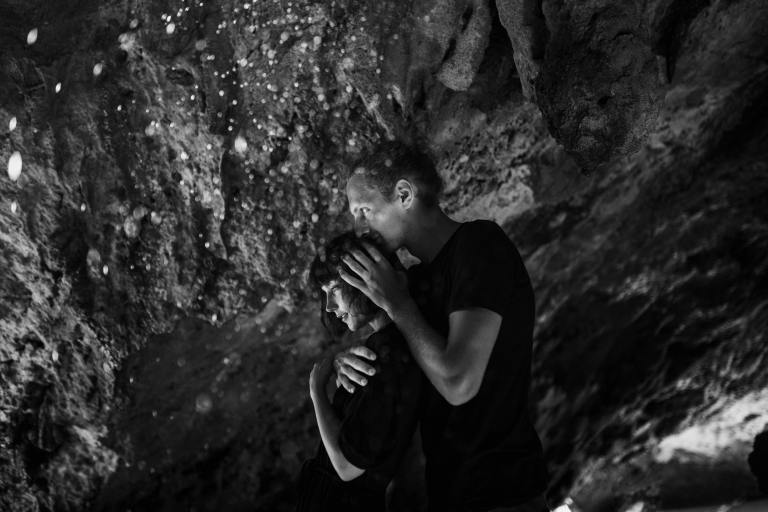
10 Behaviors That Can Destroy Relationships
Relationships fall apart all the time for various reasons — cheating, jealousy, distance, or sometimes it just isn’t a match. Sometimes, things are beyond our control. Sometimes the timing just isn’t right, sometimes we just can’t make it work because there is too much fundamental incompatibility.
But other times, it is under our control. We can choose how we show up in our relationships. And this makes a difference in whether it thrives or implodes.
Let’s look at the most common ways people destroy their relationships and how to avoid them.
1. You don’t communicate.
Communication is the key to a healthy relationship, we’ve all heard this one before. But how many of us make it a priority to truly connect with our partner?
In this day and age of digital devices, it’s just so easy to get lost in that and real-life relationships take a backseat. Next time you go out look around at how many couples or groups of friends are sitting together and all just looking at their phones. ‘
It’s easy to get lost in the shuffle and the grind of everyday life, but you have to make it a priority to actually talk to each other.
Communication plays an even more vital role when conflicts arise, which they inevitably will even in the best relationships.
It’s hard to have those honest, uncomfortable conversations because they bring up all sorts of unpleasant feelings we don’t want to feel but if you don’t talk about it, then the problems will persist and resentment will start to build.
Healthy communication can be challenging if you grew up in a home with unhealthy communication. You may find that you get overly defensive, you stonewall or shut down, you ice him out, or maybe you get extremely combative. All of these are unhealthy coping mechanisms being activated by a triggering situation, and a simple argument can be highly triggering for certain people.
When you feel those defenses going up, recognize that this is your “Protector” coming to save you. This “Protector” played a vital role when you were younger and didn’t have many skills. But you’re an adult now and you can cope in healthier ways so just ask her to step aside so you can do that.
Awareness is the first step. So just be aware of your weak spots and work on strengthening those communication skills.
2. Lack of empathy.
This is a tough one because it’s very easy to get caught up in our own experience of the relationship. It’s easy to feel like we’re the victim and it’s unfair and we’re right and he’s wrong and we’re doing everything in this relationship and getting nothing back.
I know it can feel that way in the heat of the moment, but it’s important to step back and look at your partner with more empathetic eyes. I’m not saying your hurt isn’t valid, but it won’t get you anywhere to blame him fully, he’ll just get defensive and the conversation won’t go anywhere. (And it goes without saying your partner should also activate his empathy and try to see things from your perspective).
When you can’t see his perspective, then he doesn’t feel heard and when and this will cause a breakdown in communication which will create distance between you, and the more distance there is, the less intimacy there is.
3. Too much criticism.
Why do we do this? We hate being criticized but sometimes just can’t help but do it to our partners.
It doesn’t motivate him to change and instead makes him resentful and annoyed and even less likely to do what you want.
It also creates a parent/child dynamic, where you’re his mother scolding him, and there is nothing less sexy than that.
If you are overly critical, then look deeper into where that comes from. Usually, the thing we’re most critical about in others is what we are most critical about in ourselves.
Take a look at what’s really bothering you.
Maybe you’re criticizing him for the way he folded the laundry but really, you just feel out of control in your life, like nothing is quite right. Maybe you don’t feel heard. Maybe you feel resentment toward him for not meeting certain needs and instead and it manifests as criticism.
And yes, sometimes we have valid critiques and it’s fine to bring issues up, just make sure you’re doing it in a respectful, compassionate way.
4. Being Deceptive.
There is never a good reason to be sneaky in your relationship. If you feel this need, ask yourself why.
Do you think you’re partner will get angry? Are you trying to present yourself in a certain light and you’re afraid your real self won’t be good enough?
Trust is everything. If you can’t trust him and he can’t trust you, what are we even doing here?
5. No respect.
Dr. John Gottman, the guy famous for being able to predict whether a couple will divorce with 90% accuracy, cites contempt as one of the leading factors of whether a relationship will fall apart. And of the greatest indicators of that in his research is eye-rolling.
Contempt conveys “I’m better than you, I don’t respect you and I’m just going to roll my eyes at everything you say because I find it so stupid.”
Mocking your partner and being sarcastic, and not in a playful way, are also signs of contempt.
Contempt can be the result of resentment that went unchecked for way too long.
And I always say resentment is poison for a relationship. Once it creeps in, it festers and soon enough you can’t find any positive qualities about your partner anymore.
If you can’t respect him, you need to ask yourself why. Do you really think he’s just an idiot? If so, why are you with him? Or, are you just trying to protect yourself and self-sabotaging? Or are you angry over things that happened with him in the past that you never addressed?
6. Being too sensitive and insecure.
I’m not saying never get upset when your partner says or does something hurtful, but it’s important to step back sometimes and look at where that hurt is really coming from
We all have sore spots- we all have old wounds that never fully healed and sometimes someone can say something innocent but it just presses on that raw space and we have an extreme reaction.
A lot of the time, those are our own insecurities, it’s how we already felt about ourselves but we blame our partner for “making” us feel a certain way.
For example, if you go to cut yourself a second piece of cake and he asks- are you sure you want that? And you get hysterical and think he’s calling you fat. I chose that as an example because that happened to me a long time ago with a boyfriend. The fact is, I felt insecure in the relationship and like most girls, I was chronically insecure about my body- so when he made that comment, my mind immediately went to “he thinks I’m fat and he’s not attracted to me.”
Your insecurities can really ruin a relationship if you let them run rampant, so just check yourself and see where your feelings are truly coming from
7. Setting him up to fail.
Don’t expect him to read your mind and know what you want and how you want it. If you want a happy relationship, set your partner up to win.
Just be direct, don’t drop hints and then get angry when he doesn’t pick up on them.
If you want him to plan something special for your anniversary, just tell him that! Yes, I know it would be more romantic if he could just intuit exactly what it is you want but he can’t! So just tell him instead of getting upset on the day of.
If you give him directions on how to make you happy, he will! (As long as it’s done in a kind way, not a shaming way).
8. Expecting your partner to fill a void.
Another person cannot repair what’s broken inside you. It might feel like you’ll be all whole and healed from your past trauma once you find someone who loves you enough, but there is no such thing as enough when you have that void because it can never be filled by someone else.
If you outsource the task of being “whole” to your partner then you will never be satisfied and you will resent him for not giving you this thing when really, only you can give it to yourself.
Love won’t heal you and it won’t erase your past pains and trauma. Conversely, love will bring up all that is unloved within you. Whatever it is you haven’t dealt with will keep coming up again and again.
9. Having an agenda.
This is a mistake that usually kills a budding relationship but can also harm an established one. Having an agenda means you want to push the relationship in a certain direction in order to feel good about yourself.
If you’re in the early phases of dating, you may feel this overwhelming need to become official, and you measure all of your interactions in terms of whether they’re taking you closer to or further from that goal. It’s not just about wanting the relationship because you really like this other person and want to create a meaningful partnership, it’s about what it will mean to you and about you. You attach a certain meaning onto having this thing — it will mean you’re worthy, you’re OK, you won’t end up alone, etc.
10. Avoiding confrontation.
Happy couples aren’t couples who never fight, they just don’t fight dirty. Arguements can actually be healthy and are a chance to grow as a couple, but only if you use them to reach a resolution.
If you’re having problems, nothing will change if you ignore it. Rather, you’ll end up becoming bitter and resentful and this will poison your relationship.
Avoiding confrontation can also cause you to act passive aggressive and this never takes things in a positive direction!
The way to prevent most of these destructive behaviors is to just have self-awareness. Look at what you’re bringing to the interaction (because you are the only person that you have full control over), and if they are helping or harming the state of your relationship.











